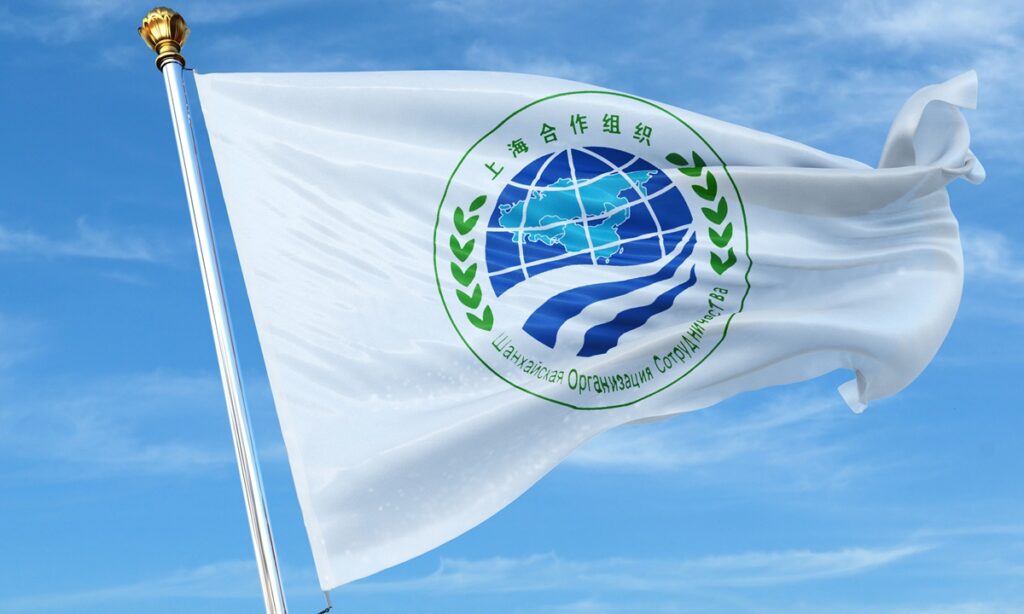Indian Prime Minister Narendra Modi will attend the Shanghai Cooperation Organisation (SCO) summit held in Uzbekistan this week, the government said in a statement on Sunday.
According to media reports, leaders from China, Russia, Pakistan and Iran are also expected to take part in what will be the SCO’s 22nd meeting, which is destined to be a rare gathering of regional countries since the pandemic and the Russia-Ukraine crisis.
At a time when India announced its decision to opt out from joining the trade pillar of Indo-Pacific Economic Framework (IPEF) after the IPEF ministerial meeting in Los Angeles, a lot of attention has been concentrated on whether the South Asian nation would be more inclined to obtain the opportunity to expand pragmatic economic cooperation with regional countries through the SCO platform.
Indeed, if India can manage its differences with some SCO member states and promote economic exchanges within the multilateral framework, there will still be considerable room for economic and trade cooperation between India and other SCO member states, which may also allay concerns over challenges facing India in integrating into the organization.
Founded in 2001, the SCO was originally established as a regional security mechanism aimed at tackling regional terrorism and other geopolitical security issues. As the issue of development has been gradually made part of the agenda, the SCO has also attached growing importance to the economic and trade cooperation among member states. In fact, one of the main purposes of India and Pakistan joining the SCO in 2017 was to promote and expand their economic and trade cooperation with neighboring countries.
At present, the combined GDP of SCO member states is about one quarter of the world’s total economic output, and member states have respective advantages in terms of resources, labor, technology and market size.
In this sense, as one of the few regional multilateral mechanisms India has joined, whether the SCO can become a platform for India to strengthen economic and trade cooperation with other member states is of great significance not only to the SCO, but also to India. Specifically, whether trade cooperation between India and Pakistan could see a breakthrough is an issue worth anticipation.
If anything, strengthened trade cooperation will be a likely starting point to improve India-Pakistan relations. There has been a long-term gulf of mistrust between India and Pakistan, and mutual trust can only be enhanced by starting from the area where it is easiest and most beneficial for both sides. Trade is one such area. In fact, although there have been limited economic and trade exchanges between the two South Asian neighbors due to ongoing political tensions, there are still signs indicating that the bilateral trade has the potential.
According to Indian media reports, bilateral trade picked up sharply in the second quarter of this year. India’s exports to Pakistan surged 72 percent year-on-year to $205 million in the three months ended June, while Pakistani exports to India reached $17.6 million in the quarter ended June, compared with $340,000 in the year-earlier period and $2 million in the previous fiscal year. Tankers accounted for 98 percent of India’s imports from Pakistan. Indian media outlets attributed the development to Pakistan’s willingness to ease trade tensions with India.
Whatever the reason, as long as the two sides are willing to enhance trade cooperation, the SCO will always be the most appropriate platform for them, which will facilitate not only bilateral trade, but also multilateral cooperation. For instance, Pakistan has been trying to take advantage of Gwadar Port’s strategic position to strengthen economic ties with Afghanistan and Iran to ease its own energy shortage problem.
The aim of the SCO is to ask member states to put aside bilateral problems and focus on peace and development. Therefore, it is worth paying attention to whether India and Pakistan can see opportunity of expanding pragmatic cooperation under the SCO framework.
As India-Pakistan relations grow and stabilize, the whole region will benefit, as will Asia.
(Global Times)




